



Recent Deals

$1 Billion
Convertible Senior Notes due 2030
Co-Manager
Summary
KeyBanc Capital Markets and Cain Brothers, a division of KeyBanc Capital Markets, successfully priced $1.0 billion of Convertible Senior Notes Due 2030 for Integer Holdings Corporation.
The offering was upsized from $750 million to $875 million, prior to the exercise of the overallotment option. The Notes will mature in 2030 and bear interest at a rate of 1.875% per annum, with a conversion premium of 27.50%. Both the coupon and the conversion premium priced at the midpoint of the initial talk ranges. Proceeds from the offering will be used to refinance a portion of the company’s outstanding 2028 Convertible Senior Notes, repay borrowings under its revolving credit facility, fund the cost of capped call transactions, and for general corporate purposes.
Integer is one of the largest medical device contract development and manufacturing organizations in the world, serving the cardiac rhythm management, neuromodulation, and cardio and vascular markets. As a strategic partner of choice to medical device companies and OEMs, Integer is committed to enhancing the lives of patients worldwide by providing innovative, high-quality products and solutions. Integer’s brands include Greatbatch Medical® and Lake Region Medical®.

acquired

Senior Secured Credit Facilities
Sole Lead Arranger
Administrative Agent
Summary
On March 17, 2025, KeyBanc Capital Markets (KBCM) successfully closed Senior Secured Credit Facilities of an undisclosed amount in support of Sandbrook Capital’s acquisition of Intellirent. KBCM served as Sole Lead Arranger and Administrative Agent on the transaction.
Intellirent specializes in the global rental of field-ready test equipment for electrical applications, offering tailored selection, preparation, technical support, and logistics to ensure optimal performance and delivery. The company offers a broad range of critical testing equipment for field service technicians to perform maintenance and repair, installation and commissioning, and emergency response on critical electrical infrastructure.

a portfolio company of

$625 Million
Senior Secured Credit Facilities
Joint Lead Arranger
Joint Bookrunner
Summary
KeyBanc Capital Markets and Cain Brothers, a division of KeyBanc Capital Markets, successfully closed the syndication of $625 million of Senior Secured Credit Facilities in support of ImageFirst Holdings, a portfolio company of Calera Capital.
The Credit Facilities consist of a $125 million Revolving Credit Facility, and a $500 million Term Loan B. Proceeds from the Credit Facilities will be used to refinance existing indebtedness and fund a distribution to shareholders.
ImageFirst is a leading provider of outsourced laundry and textile rental services with a focus on outpatient and specialty healthcare in the U.S. With 70+ locations across 33 states serving over 28,000 customer locations, the Company provides mission critical services to their customers who cannot care for patients without clean linens and other laundry products.
Founded in 1991, Calera Capital is a private investment firm based in San Francisco and Boston that has invested over $4 billion of equity into leading middle market companies. Calera has significant experience and a successful track record of investment in commercial services, healthcare services, and other businesses similar with ImageFirst.

has received an entity-level preferred equity investment from

Sole Placement Agent
Summary
On March 7, 2025, KeyBanc Capital Markets (KBCM) served as Sole Placement Agent to Terravet REIT, Inc. (Terravet) on their entity-level preferred equity investment (the Investment) from Sculptor Capital Management, Inc. (Sculptor). KBCM ran a broad marketing process that yielded critical mass of actionable investment proposals, which drove competition between potential investors and ultimately attractive terms and pricing. The Investment will be used to reduce debt and execute an active acquisition pipeline to further scale the platform.
KeyBank Real Estate Capital serves as Administrative Agent and Lead Arranger on the company’s Credit Facility as well as all other of Terravet Real Estate Solutions’ credit facilities across their private equity platform.
Terravet REIT is managed by Terravet Real Estate Solutions, which was first established in 2012 as the first institutional and preeminent aggregator of net leased veterinary and niche human healthcare real estate. Terravet aims to drive outsized risk adjusted returns through acquiring recession resistant real estate in highly fragmented healthcare sub sectors, primarily veterinary and ophthalmology. To date, the Terravet Companies have utilized proprietary relationships and its unique position within its market to acquire over 200 properties.
Sculptor is a leading global alternative asset management firm providing investment products in a range of areas including multi-strategy, credit, and real estate. Sculptor’s capabilities span all major geographies, in strategies including fundamental equities, corporate credit, real estate debt and equity, merger arbitrage, structured credit and private investments.
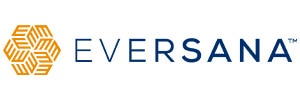
a portfolio company of


$1.058 Billion
Senior Secured Credit Facilities
Joint Lead Arranger
Joint Bookrunner
Administrative Agent
Summary
KeyBanc Capital Markets and Cain Brothers successfully closed the syndication of $1.058 billion of Senior Secured Credit Facilities in support of Eversana, a portfolio company of JLL Partners and Water Street Healthcare Partners.
The Credit Facilities consist of a $108 million Revolving Credit Facility and a $950 million First Lien Term Loan. Proceeds from the Credit Facilities will be used to refinance existing indebtedness and pay transaction-related expenses.
Eversana is a Chicago-based provider of drug commercialization services for pharmaceutical and biotechnology customers with over 6,000 employees and 30 locations across the globe. Services include strategic advisory, market access, global pricing, HEOR, and agency with expertise in over 100 therapeutic areas. The Company serves a diverse customer base of over 650 organizations, including the top 25 pharmaceutical companies and top 10 biotechs in the world.
JLL Partners is a New York–based middle-market private equity firm specializing in healthcare, industrials, and business services. Since being founded in 1988, JLL Partners has raised $5.8 billion across eight funds, working to accelerate growth and elevate their portfolio companies through organic growth initiatives, operational enhancements, and strategic M&A.
Founded in 2005, Water Street Healthcare Partners is a private equity firm focused exclusively on the healthcare industry. The Sponsor has ~$7.5 billion in AUM and is investing out of its fifth fund. Water Street is currently an investor in 21 healthcare companies across numerous healthcare subsectors.

1.7 Billion
Senior Secured Credit Facilities
Coordinating Lead Arranger
Joint Bookrunner
Syndication Agent
Summary
On March 4th, 2025, KeyBanc Capital Markets Inc. (KBCM) successfully closed on $1.7 billion of Senior Secured Credit Facilities (the Facilities) supporting Copia Power’s utility-scale solar plus energy storage project (Maricopa or the Project). The Facilities comprise a $1,416 million construction-to-term loan, a $90 million tax-credit bridge loan, and $204 million in letters of credit. Proceeds will be used to fund the Project’s construction costs. KBCM acted as Coordinating Lead Arranger, Joint Bookrunner, and Syndication Agent.
Maricopa is a 691 MWdc solar + 2,200 MWh energy storage project located in Maricopa County, Arizona, interconnecting to the Arizona Public Service owned Delaney Substation. The Project is being developed with tier-1 equipment and will be constructed in two phases beginning in Q1 2025. Maricopa is expected to reach full commercial operations in Q1 2027.
This represents the fourth transaction between Copia Power and KBCM.
Copia Power Overview
Copia Power is a renewable energy infrastructure platform launched by The Carlyle Group (NASDAQ: CG) in March 2021. Created with the acquisition of Tenaska’s 6 GW solar and energy storage pipeline, Copia’s goal is to become a leading, integrated energy transition platform specializing in developing, owning, and operating giga-scale projects in select U.S. markets. The company is led by industry veterans with extensive shared experience in developing, commercializing, constructing, and operating more than 10 GW of renewable energy projects.
Since its launch, Copia Power has built a robust 20+ GW development pipeline across the U.S. with an additional 1.5 GW of projects beginning construction in the last 12 months. KBCM advised Copia Power (f.k.a. Birch) on its platform investment from The Carlyle Group in March 2021.

$530 Million
Asset-Backed Securitization
Placement Agent
Summary
On February 20, 2025, KeyBanc Capital Markets acted as Placement Agent on a $530 million asset-backed securitization (ABS) for Diversified Energy Company PLC (Diversified or the Company). This is Diversified’s tenth ABS transaction, holding it as the largest issuer of PDP securitizations. The ABS was oversubscribed at ~7x. The transaction is collateralized by conventional Appalachian assets.
Diversified (NYSE & LSE: DEC) is a leading independent energy company focused on natural gas and liquids production, transportation, marketing, and well retirement, primarily located within the Appalachian and Central regions of the United States. The Company’s strategy is to acquire existing long-life assets and to make investments in those assets to improve environmental and operational performance under a modern field management philosophy. Diversified’s target assets are characterized by multi-decade production profiles and low decline rates.

$123.25 Million
Follow-On Offering
Joint Bookrunner
Summary
On February 19, 2025, KeyBanc Capital Markets acted as Joint Bookrunner on a $123.25 million Follow-On Offering for Diversified Energy Company PLC (Diversified or the Company). Total shares allotted in the offering were 8.5 million excluding overallotment, at an offering price of $14.50. Proceeds will be used repay a portion of the debt expected to be incurred in connection with Diversified’s pending acquisition of Maverick Natural Resources and for general corporate purposes.
Diversified (NYSE & LSE: DEC) is a leading independent energy company focused on natural gas and liquids production, transportation, marketing, and well retirement, primarily located within the Appalachian and Central regions of the United States. The Company’s strategy is to acquire existing long-life assets and to make investments in those assets to improve environmental and operational performance under a modern field management philosophy. Diversified’s target assets are characterized by multi-decade production profiles and low decline rates.

$1 Billion
Term Loan B
Documentation Agent
Summary
On February 11, 2025, KeyBanc Capital Markets was party to a successful closing and syndication of a debut $1 billion five-year Term Loan B (the TLB) for Hilcorp Energy I, LP (Hilcorp or the Company). Proceeds will be used to repay borrowings under the senior secured revolving credit facility, which has a borrowing base of $3.5 billion and elected commitments of $2.1 billion. The TLB is pari-passu with the senior secured revolving credit facility. In 2024, Hilcorp acquired: (i) Alaska assets for $1 billion on November 1, 2024, and (ii) Permian assets for $950 million on December 31, 2024. The Company has a pending acquisition in the Permian expected to close in 1Q25.
Founded in 1988 and based in Houston, Texas, Hilcorp is one of the largest independent exploration and production companies in the United States, with a strategic focus on conventional, mature, legacy oil and gas assets. Hilcorp operates assets across Alaska, New Mexico, Texas, Louisiana, Wyoming, and in the Utica in northeast Ohio and western Pennsylvania.

a subsidiary of

has been acquired by

Financial Advisor
Summary
Cain Brothers, a division of KeyBanc Capital Markets, served as exclusive financial advisor to EmblemHealth.
EmblemHealth has sold its wholly owned subsidiary, ConnectiCare, to Molina Healthcare (NYSE: MOH). The transaction enables Molina to add an established government business with a recognized brand, a statewide provider network and a new state, while EmblemHealth will use proceeds to focus on existing business lines. Cain Brothers was engaged as exclusive financial advisor because of its long-standing relationship with EmblemHealth as well as deep domain expertise in managed care.
ConnectiCare is a leading health plan in Connecticut and has been dedicated to making the state a healthier place to live and work since its founding in 1981. ConnectiCare has a range of products and services for businesses, municipalities, and individuals, as well as those who are Medicare-eligible, and is the leading provider of individual health insurance in the state.
EmblemHealth is one of the nation’s largest nonprofit health insurers, with more than 3 million members and an 80-year legacy of serving New York’s communities. The company offers a full range of commercial and government-sponsored health plans to employers, individuals, and families, as well as convenient community resources. As a market leader in value-based care, EmblemHealth partners with top providers and hospitals to deliver quality, affordable care.
Molina Healthcare, a FORTUNE 500 company, provides managed healthcare services under the Medicaid and Medicare programs and through the state insurance marketplaces.

acquired by

a portfolio company of
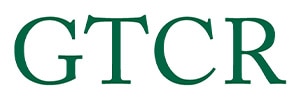
Exclusive Financial Advisor
Summary
KeyBanc Capital Markets (KBCM) successfully advised Ravelin Technology Ltd. (Ravelin), a leading AI-native enterprise fraud prevention technology platform, on its sale to Worldpay International Group Ltd. (Worldpay), a portfolio company of GTCR. The transaction is expected to close in Q1 2025.
Ravelin is a leading fraud prevention platform trusted by global brands to protect against the myriad threats posed by fraudsters. The company’s fraud prediction and prevention solutions identify payment fraud, account takeover, return and refund abuse, promotion and voucher abuse, and marketplace fraud. Ravelin also performs 3D-Secure identification. With a proven track record of delivering tangible results, Ravelin is committed to helping businesses thrive in an increasingly complex digital landscape.
Worldpay is an industry-leading payments technology and solutions company with unique capabilities to power omni-commerce around the globe. Its processing solutions allow businesses of all sizes to take, make, and manage payments in person and online from anywhere in the world. Annually, Worldpay processes more than 50 billion transactions in 146 countries and 135 currencies, helping its customers become more efficient, more secure, and more successful.

$650 Million
Senior Notes
Joint Bookrunner
Summary
In February 2025, KeyBanc Capital Markets acted as Joint Bookrunner on Freedom Mortgage Holdings LLC’s (Freedom or the Company) offering of $650 million Senior Notes due 2032. Proceeds from the offerings will be used to pay down a portion of the KeyBank MSR facility and to pay related fees and expenses.
Freedom is a leading nationwide residential mortgage loan originator and servicer. The Company focuses primarily on originating and servicing Agency-eligible residential mortgage loans collateralized by one- to four-family homes throughout the U.S.

Mini U Storage Santa Fe
$8.2 Million
CMBS Fixed Rate Loan
Summary
The transaction includes an $8.2 million ($133/SF) non-recourse, first mortgage loan secured by a 79,163 square foot (61,881 NRA), 697-unit self-storage facility known as Mini U Storage Santa Fe, located in Santa Fe, NM. Built in 2009 and renovated in 2016, the subject is currently improved with three single-story self-storage buildings and one, 2-story building containing a leasing office and storage units, situated on a 2.83-acre site. The proposed loan will be used to refinance existing debt. The loan is structured with a 10-year interest only term.

Forest Lake
$55.5 Million
Freddie Mac Floating Rate Loan
Summary
The transaction includes a 1,068-bed (313-unit) garden-style, off-campus student housing community in Southern Florida. Built in 2001 and renovated in 2022, the property consists of 24, 3-story apartment buildings. The proposed loan will be used to refinance existing debt on the property. The loan is structured with a 10-year term, and subsequent to a 5-year interest only period, amortizes on a 30-year schedule. The improvements are situated on a 41.2-acre site.

The Valley Apartments
$15.6 Million
Fannie Mae Fixed Rate Loan
Summary
The transaction includes a $15,623,000 ($195,288/unit) non-recourse, first mortgage loan secured by 80-unit, garden style apartment complex known as The Valley Apartments located in Dublin, CA. Built in 1970, the property consists of four 2-story apartment buildings. The improvements are situated on a 2.92-acre site. The proposed loan will be used to refinance the existing debt of the property. The loan is structured with a 5-year term, and subsequent to a 2-year interest only period, amortizes on a 30-year schedule.

WELL/Aurora/Peace-Paw-Park Place
$16.6 Million
FHA Fixed Rate Loan
Summary
The transaction includes a $16,664,000 ($177,277/bed) non-recourse, first mortgage loan secured by a 94-bed skilled nursing facility known as Complete Care at Park Place located in South Brunswick Township, NJ. Built in 1996, the Subject is licensed for 94 beds/ 49 units and has been operating at its full capacity. The property consists of one-story building, totaling 46,940 gross-sf and spread across a 5.68 acre of land. The proposed loan will be used to refinance the existing debt of the property. The loan is structured with a 35-year term and amortizes on a 35-year schedule.

sold 100% of its membership interests
in its community solar portfolio to

Exclusive Sell-Side Advisor
Summary
KeyBanc Capital Markets served as exclusive sell-side advisor to Renewable Properties on the sale of its 11 megawatt direct current (MWDC) solar community solar portfolio to Nautilus Solar. The portfolio was composed of two late-stage community solar assets in Illinois. The transaction closed in January 2025.
Nautilus Solar Energy Overview
Nautilus Solar Energy is one of the largest providers of community solar in the U.S., providing cleaner energy to residential and commercial customers in local communities. Nautilus operates and manages more than 150 solar farms in 12 states and is responsible for financing, development, maintenance, and customer service for the lifetime of the project. Founded in 2006, Nautilus has helped shape the future of solar to provide an equitable and affordable renewable energy choice for all. Nautilus is owned by Power Sustainable, a wholly owned subsidiary of Power Corporation of Canada. Power Sustainable is a multi-platform alternative asset manager with a long-term investment approach focused on sustainable strategies.
Renewable Properties Overview
Founded in 2017, Renewable Properties specializes in developing and investing in small-scale utility, community solar, energy storage, and electric vehicle (EV) infrastructure projects throughout the U.S. Led by experienced renewable energy professionals with development and investment experience, Renewable Properties is active in 16 states and has more than 1.2 gigawatts (GW) of solar and energy storage under development with over 250 MW under construction or in operation. Renewable Properties works closely with communities, developers, landowners, utilities, and financial institutions looking to invest in solar energy systems.

a portfolio company of

acquired by

Sell-Side Advisor
Summary
On January 17, 2025, KeyBanc Capital Markets (KBCM) successfully advised Astro Shapes, LLC (Astro Shapes or the Company), a portfolio company of Monomoy Capital Partners (Monomoy), on its sale to Wynnchurch Capital L.P. (Wynnchurch). KBCM was chosen to serve as Astro Shapes’ Sell-Side Advisor based on its industry-leading Metals and Building Products practices and proven M&A execution capabilities.
Headquartered in Struthers, Ohio, Astro Shapes is a leading manufacturer of custom aluminum extrusion products for customers across multiple attractive end markets including Residential and Commercial Building Products, RV/Non-Auto Transportation, and other consumer products. The Company operates three facilities with six state-of-the art extrusion presses, two paint lines, fabrication capabilities, and other value-added finishing services. Astro Shapes is a one-stop shop providing high-quality, customized products to address the unique needs of leading original equipment manufacturers (OEMs) and customers across multiple end markets.
Monomoy is a New York-based private investment firm with more than $5 billion in assets under management across a family of investment funds. Monomoy invests in middle-market businesses that can benefit from operational and financial improvement with a focus on manufacturing, distribution, and business services companies across industrial and consumer product sectors in North America.
Headquartered in Chicago, Wynnchurch is a leading middle market private equity investment firm with more than $9 billion in assets under management. The firm focuses on middle market companies in the United States and Canada that possess the potential for substantial growth and profit improvement.
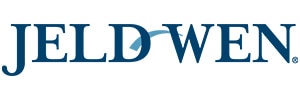
divested its
Towanda, Pennsylvania Facility and Related Assets
to

Exclusive Sell-Side Advisor
Summary
On January 17, 2025, KeyBanc Capital Markets (KBCM) successfully advised JELD-WEN Holding, Inc. (JELD-WEN or the Company), on the court-ordered divestiture of its Towanda, Pennsylvania, facility and related assets to Woodgrain Millwork, Inc. (Woodgrain). KBCM was hired by the Honorable Lawrence F. Stengel, in his capacity as the Special Master, pursuant to the Order of United States District Judge Robert E. Payne. KBCM was chosen to serve as Exclusive Sell-Side Advisor based on its industry-leading Building Products practice, proven M&A execution capabilities, and relevant carveout transaction experience.
Headquartered in Charlotte, North Carolina, JELD-WEN is a leading manufacturer of interior and exterior doors, wood, vinyl and aluminum windows, wall systems, shower enclosures, closet systems, and other interior and exterior components used in the construction, repair, and remodel of residential homes and nonresidential buildings. The Company’s Towanda, Pennsylvania, facility produces a wide range of interior door-skin products as well as its MiraTEC- and Extira-branded exterior trim products.
Headquartered in Fruitland, Idaho, Woodgrain is a family-owned, vertically integrated manufacturer and distributor of doors, windows, moulding, trim, engineered and composite lumber, and other related building products for use in new construction as well as repair and remodeling projects. The company’s network of 45 manufacturing facilities and warehouses spread across North and South America supply thousands of dealers in the United States.

received a strategic equity investment from
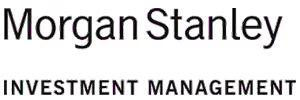
Exclusive Financial Advisor
Summary
On January 21, 2025, Torch Clean Energy (Torch or the Company), a premier U.S.-based utility-scale solar and storage developer, announced a strategic investment from Morgan Stanley Infrastructure Partners (MSIP). This partnership with MSIP marks a pivotal transformation for Torch, enabling it to transition from a development platform to an integrated clean power platform with capabilities across development, construction, and asset management. MSIP’s investment in Torch provides committed capital to expand and transition the Torch platform. KeyBanc Capital Markets (KBCM) served on the transaction as Exclusive Financial Advisor to Torch Clean Energy.
KBCM ran a dual-track process for Torch — a broadly marketed sale of the Company’s development-complete solar and storage portfolio in parallel with a platform equity capital raise marketed to select investors. This approach allowed Torch to consider a transformational platform partnership alongside a non-dilutive asset sale. KBCM highlighted Torch’s differentiated strategy and above-market profitability, which resulted in the Company’s equity partnership with MSIP.
About Torch Clean Energy
Torch Clean Energy is a clean energy and battery storage developer with extensive experience developing, permitting, designing, and building solar, wind, and battery energy storage projects. Torch has originated, developed, and sold 1.2+ gigawatts (GW) of renewable power projects. Based in Boulder, Colorado, Torch Clean Energy has operated as an independent, founder-owned developer since 2015.
About Morgan Stanley Infrastructure Partners
Morgan Stanley Infrastructure Partners (MSIP) is a leading global private infrastructure investment platform with approximately $16 billion in assets under management. Founded in 2006, MSIP has invested in a diverse portfolio of more than 35 investments across transport, digital infrastructure, energy transition, and utilities. MSIP targets assets that provide essential public goods and services with the potential for value creation through active asset management.

acquired

Senior Secured Credit Facilities
Joint Lead Arranger
Joint Bookrunner
Syndication Agent
Summary
On January 14, 2025, KeyBanc Capital Markets (KBCM) successfully closed on an undisclosed amount of Senior Secured Credit Facilities in support of Stellex Capital Management’s acquisition of ICS Holding, LLC. KBCM served as Joint Lead Arranger, Joint Bookrunner and Syndication Agent on the transaction.

$500 Million
Senior Notes
Joint Bookrunner
Summary
On January 8, 2025, KeyBanc Capital Markets served as Joint Bookrunner on a $500 million Senior Notes offering for Kimmeridge Texas Gas, LLC. Proceeds will be used for general corporate purposes.
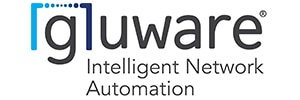
acquired by

Exclusive Financial Advisor
Summary
On January 8, 2025, KeyBanc Capital Markets (KBCM) successfully advised Gluware, Inc. (Gluware), on its acquisition by Cuadrilla Capital, LLC (Cuadrilla Capital). KBCM was engaged as the Exclusive Financial Advisor because of its industry leading infrastructure software sector expertise and strong M&A capabilities.
Gluware powers the world’s most complex enterprise networks with enterprise-grade, intent-based, multi-vendor, intelligent network automation — ready out-of-the-box or as a unifying developer platform. The leading choice of the Global 2000, Gluware’s self-operating and auto-remediating platform handles millions of network changes simultaneously, flawlessly, and in minutes, saving businesses significant time and resources. Gluware is the only turnkey, intelligent network automation software platform for NetOps and NetDevOps that automates enterprise networks in as little as 30 days.
Cuadrilla is a leading enterprise software investment firm founded in 2021 with over $500 million in assets under management. Cuadrilla partners with exceptional SaaS companies with strong product-market fit and significant strategic value to drive accelerated growth and long-term success. The firm is headquartered in Santa Barbara, California.

$171 Million
Follow-On Offering
Co-Manager
Summary
On January 7, 2025, KeyBanc Capital Markets served as Co-Manager on a $171 million Follow-On Equity Offering for Kimbell Royalty Partners, LP.

a portfolio company of

acquired by

a portfolio company of

Exclusive Sell-Side Advisor
Summary
On January 2, 2025, KeyBanc Capital Markets (KBCM) successfully advised Air Temp Holding, LLC (Air Temp), a portfolio company of Anvil Capital Partners (Anvil), on its sale to PremiStar, LLC (PremiStar), a portfolio company of Partners Group. KBCM served as Air Temp’s Exclusive Sell-Side Advisor based on its industry-leading Industrial & Business Services practice, longstanding relationship with Anvil, and proven M&A execution capabilities.
Founded in 2001, Air Temp is one of the largest independent commercial HVAC, plumbing, and mechanical service providers in the Northeastern U.S. Air Temp offers service, maintenance, retrofits, controls, and energy efficient solutions to longstanding customers primarily serving the education, municipal, manufacturing, and healthcare end markets.
Anvil is a Boston-based private equity firm that invests in manufacturing and service companies based in the Northeastern U.S. Anvil specializes in acquiring established micro-market companies with identifiable potential for outsized value creation.
Founded in 1930 as Reedy Industries, PremiStar is a leading provider of commercial HVAC, plumbing, and building controls services. PremiStar provides industry-leading solutions from 50 strategically located branches in 14 states, with a network of 1,700+ field technicians who service more than 14,000 customers across the U.S.
Partners Group is a global private equity firm with a North America headquarters in Broomfield, Colorado. The firm has ~$149 billion in assets under management and has invested over $221 billion across private equity, private credit, infrastructure, royalties, and real estate strategies.

Central at South Haymarket
$85 Million
Construction Loan, LIHTC Equity, and Permanent Loan
Summary
Key Community Development Lending & Investment provided $85 million in financing for the new construction of Central at South Haymarket, a 175-unit affordable housing project in Lincoln, Nebraska. All 175 units serve familes and individuals earning no more than 50 - 70% of area median income. Supportive services will be offered to residents and include English language learning classes, financial literacy education, food support and nutrition education, and a scholarship program. The financing includes a construction loan, LIHTC equity, and a permanent loan. We want to thank The Annex Group for their commitment to building much needed affordable housing in Nebraska.

Belen Vista
$8.2 Million
Construction Loan
Summary
Key Community Development Lending & Investment provided $8.2 million in financing for the rehabilitation of Belen Vista, an existing 56-unit affordable housing building in Belen, New Mexico. All 56 units serve families and individuals earning no more than 30 - 60% of area median income. Supportive services are offered to residents and include health and nutrition education, health screening, computer training, job training, and a summer food program. The financing includes a construction loan. We want to thank the Chelsea Investment Corporation for their commitment to preserving much needed affordable housing in New Mexico.

Aurora Apartments
$73.5 Million
Construction Loan, LIHTC Equity, Permanent Loan, and Bond Underwriting
Summary
Key Community Development Lending & Investment provided $73.5 million in financing for the new construction of Aurora Apartments, a 156-unit affordable housing project in Billings, Montana. All 156-units will serve families and individuals earning no more than 60% of area median income. The financing includes a construction loan, LIHTC equity, permanent loan, and bond underwriting. We want to thank Wasatch Affordable Ventures for their commitment to building much needed affordable housing in Montana.
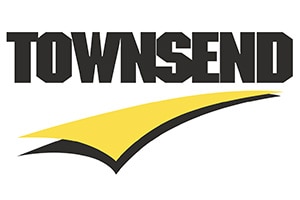
a portfolio company of

Senior Secured Credit Facilities
Joint Lead Arranger
Joint Bookrunner
Summary
On December 31, 2024, KeyBanc Capital Markets (KBCM) successfully closed Senior Secured Credit Facilities of an undisclosed amount to support Townsend Company, LLC, a Warren Equity Partners portfolio company, in an acquisition. KBCM served as Joint Lead Arranger, Joint Bookrunner, and Revolving Credit Facility Administrative Agent.

entered into an agreement with
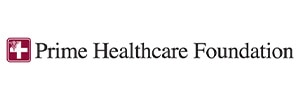
Sell-Side Advisor
Summary
Central Maine Healthcare and Prime Healthcare Foundation have finalized their affiliation agreement, allowing the residents of central, western, and Midcoast Maine to continue to have access to the highest-quality, most advanced health care in the region.
Cain Brothers was engaged by Central Maine Healthcare as its exclusive advisor based on its expertise in the hospital and health system sector and strong understanding of the New England market. Cain Brothers engaged with parties interested in continuing CMH’s mission and finalized an affiliation agreement with Prime Healthcare Foundation. Terms include continued local governance and management, ongoing community commitment, and significant capital investment, and are subject to regulatory approval.
Central Maine Healthcare is an integrated health system serving more than 400,000 residents and includes 600 physicians and advanced practice professionals in more than 40 locations, as well as Central Maine Medical Center in Lewiston, a 250-bed, not-for-profit, Level III Trauma Center that serves as the base for LifeFlight of Maine, the state’s only medical helicopter. CMH also operates the Bridgton and Rumford hospitals, two 25-bed critical-access hospitals serving the Lakes Region and River Valley communities, respectively.
CMH includes two long-term care communities, Bolster Heights, an 84-bed assisted living facility, and Rumford Community Home, an 85-bed, active-living community, as well as Maine’s first nursing and medical imaging programs, Maine College of Health Professions.
Prime Healthcare is one of the nation’s leading health systems, serving more than 2.6 million patient visits annually. With nearly 45,000 employees and physicians, Prime operates 44 hospitals and more than 300 outpatient locations in 14 states. Fourteen of the company's hospitals are members of the Prime Healthcare Foundation, a 501(c)(3) not-for-profit public charity. Based in Ontario, Canada, Prime is nationally recognized for quality care and has been named a Top 10 and Top 15 Health System by Truven Health Analytics. Its hospitals have been named among the nation’s “100 Top Hospitals” 69 times and have received more Patient Safety Excellence Awards from Healthgrades than any other health system in the past eight years.

has raised a development capital facility from

Exclusive Financial Advisor
Summary
KeyBanc Capital Markets, Inc. (KBCM) served as exclusive financial advisor to AMPYR Energy USA (AMPYR or the Company) on its development capital raise from Crayhill Capital Management LP (Crayhill). The transaction closed in December 2024.
Transaction Overview
KBCM was engaged by AMPYR to raise a strategic development capital facility to fund its utility-scale solar and energy storage development pipeline. The facility will provide up to $200 million of capital. KBCM leveraged existing relationships with leading capital providers to conduct a targeted process that resulted in multiple attractive offers, maximizing competitive tension, which ultimately optimized the terms of the facility. KBCM supported AMPYR throughout the entire process, identifying prospective lenders, guiding the marketing strategy, and negotiating structure and terms through transaction close.
AMPYR Energy USA Overview
Founded in 2021, AMPYR specializes in the development, construction, operation, and optimization of utility-scale solar power generation and co-located storage projects across all major markets in the country. AMPYR is a joint venture between AGP Group (AGP) and Hartree Partners (Hartree). AGP has a decade-long track record in development, construction, and operation of renewable IPPs globally. Key partners of AGP delivered more than 3 gigawatts (GW) of renewable assets at a predecessor business and successfully exited the platform to Global Infrastructure Partners. Hartree, a New York-headquartered global merchant commodities company, is active in energy trading and the renewable energy sector with a portfolio of 20 million megawatt hours (MWh) under management.
Crayhill Capital Management LP Overview
Founded in 2015, Crayhill is an asset-based private credit manager based in New York City. Its asset-based investment strategies draw on deep sector expertise and relationships throughout the structured finance and specialty finance markets

The Waters
$101.3 Million
Construction Loan, LIHTC Equity, Permanent Loan, and Bond Underwriting
Summary
Key Community Development Lending & Investment provided $101.3 million in financing for the new construction of The Waters, a 180-unit senior affordable housing project in Apopka, Florida. All 180 units will serve senior citizens earning no more than 60% of area median income. The financing includes a construction loan, LIHTC equity, a permanent loan, and bond underwriting. We want to thank Dominium for their commitment to building much needed senior affordable housing in Florida.






